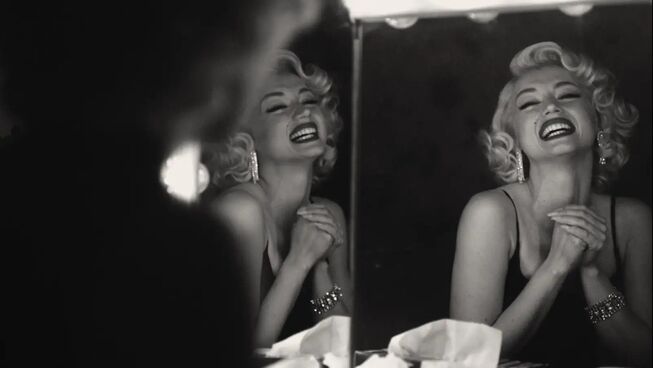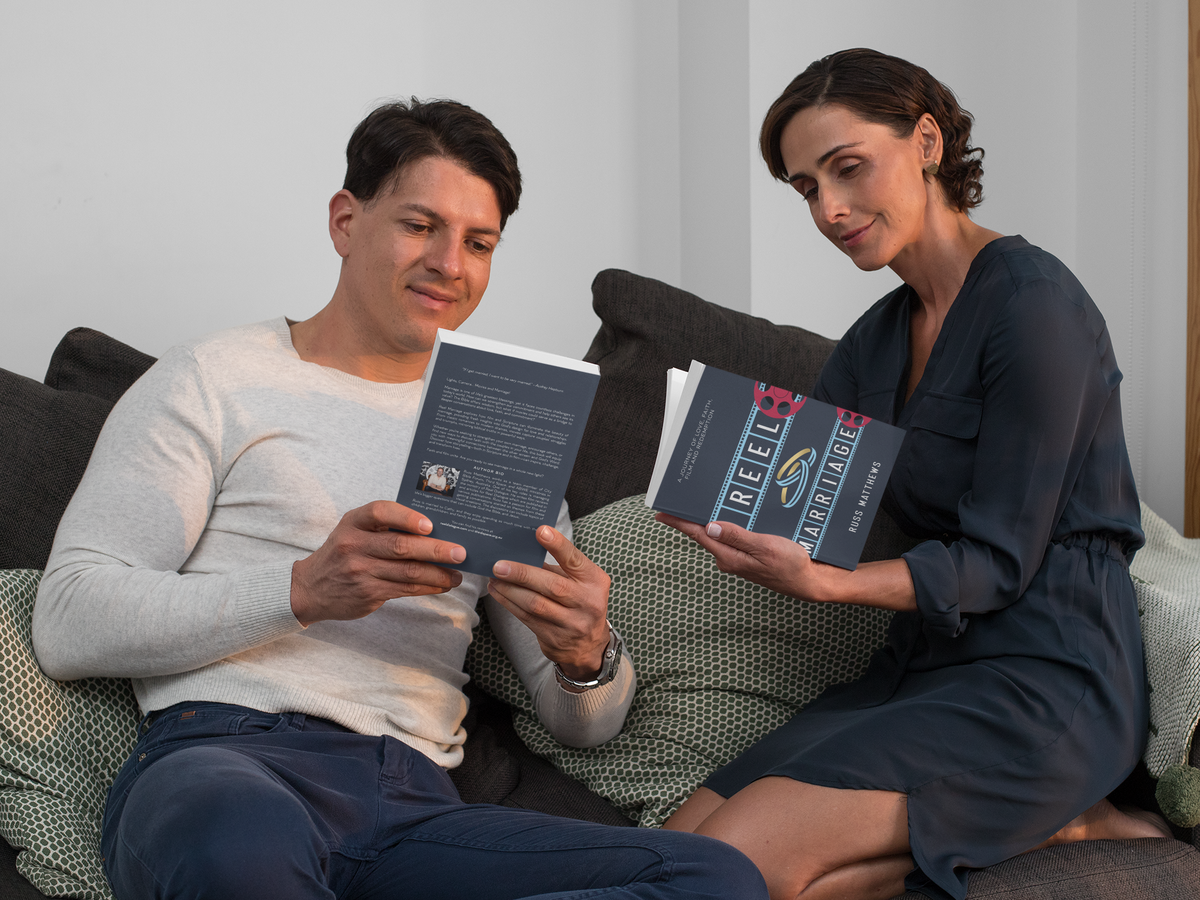
1 out of 5 stars
What is ironic about Andrew Dominik’s Netflix’s film, Blonde, is that it is meant to show how Marilyn Monore was exploited throughout her life. Despite being a fictionalised account of her career and personal life, it may be difficult for audiences to discern between mythology and reality. The irony lies in how Joyce Carol Oates' book becomes a lesson in exploitation itself as it capitalises on the sensationalistic nature of the legend of the cinematic icon. Yet, it is the mature rating that has captured the attention of the press.
The story takes us back to Norma Jeane Mortenson’s abusive lifestyle as she survived living with a mentally unstable mother who was eventually institutionalised. After her time in a local orphanage, Norma Jean (Ana de Armas) made her way in life by capitalising on her looks by becoming a pin-up girl under the stage name of Marilyn Monroe. All the while she hoped to make her break into motion pictures until she finally landed the role of Nell in Don't Bother to Knock. She began to establish herself in Hollywood, the young actress was taken advantage of sexually and relationally by many within the industry. Yet, amongst all those who wanted to take advantage of her, she established a career that would catapult her to legendary proportions with Gentlemen Prefer Blondes and The Seven Year Itch.
Throughout her time of on-screen success, the actress began to have a difficult time differentiating between Norma Jean and her alter-ego, Marilyn. Her method acting style led to numerous mental episodes and the remedy for her anguish was found in narcotics and men. This led to well-documented marriages and divorces to baseball great Joe DiMaggio and playwright Arthur Miller, terminated pregnancies, and rumoured affairs with Robert and John F.Kennedy. Then woven throughout these relationships and addiction struggles, Marilyn contuned to hope that she would one day meet her estranged father.
For anyone who has studied the life of Marilyn Monroe, the challenge is to differentiate between what was real and urban legend. This is only exacerbated by films like this one that are not based in fact, but lean into the mythology of this era-defining actress. Ana de Armas (Knives Out) does give a career-defining performance as the lead. Still, most of the storyline proves so confronting that it is difficult to watch throughout the 166-minute run time. The Cuban/Spanish actress does manage to embody the movie legend’s persona to such a degree that most viewers may have concerns if she mentally recovered from this role.
Between the drug usage, abortions, sexual escapades, rape, and abuse depicted on-screen, it is a wonder that this film was allowed to be released on Netflix. Every element of this fabricated depiction of Monroe’s life was taken to such an extreme, there is no doubt why this received the rating it deserves. Yet, the question is how something that exploits the image of this woman can be celebrated as entertainment, especially in an age where these elements are treated with utter contempt. Some could chalk this objectification of Marilyn as a cautionary tale for the industry it represents. Still, nothing about this film points to any moral rectification for those who took advantage of her. Andrew Dominik’s dream becomes an object lesson of how not to treat those from the past who are not here to defend themselves from the misappropriation of their history.

Reel Marriage
Lights, Camera... Movies and Marriage!
Marriage is one of life’s greatest blessings, yet it faces countless challenges in today’s world. How can we strengthen our commitment and help others see its value? The Bible offers wisdom, but what if movies could serve as a bridge to deeper conversations about love, faith, and commitment?
Reel Marriage explores how film and Scripture can illuminate the beauty of marriage, providing fresh insights into God’s design for love and relationships. From classic romances to modern dramas, movies capture couples' struggles and triumphs, mirroring biblical truths in powerful ways.
Faith and film unite. Are you ready to see marriage in a whole new light?
If you order your copy today you will also receive a complementary handbook that is only available with the purchase of the book (Print or ebook)
Reel Dialogue: How abuse on any level is wrong
Abuse on any level should be confronted and stopped. Even though Blonde does not claim to be actual history, many may interpret this story as accurate. That in itself shows how we can even abuse our history for the sake of entertainment. While within the film, the excessive depictions of abuse and drug use turn this film from a commentary on historical events to an uncomfortable reflection of our culture. With all that is occurring in the media about violence towards women, it seems odd to celebrate a film that pulls no punches in its depiction of abuse.
Within the Christian heritage, the Bible condemns the abuse of anyone, especially women and children, from Genesis to the writing of Paul in Ephesians. Those who believe in God's words should consider whether this film is worth viewing for their curiosity or entertainment. This reality begs the question within this social climate of how this story can truly entertain audiences.
The artistry of Blonde can be appreciated by discerning audiences. Yet, there is very little to celebrate in the story of this artificially created depiction of Marily Monroe’s life. Even with the stellar performance from Ana de Armas, the story's overarching themes will make it hard to enjoy as much as developing feelings of pity for all involved in this project.
Where to go if you are experiencing domestic abuse: Mission Australia






